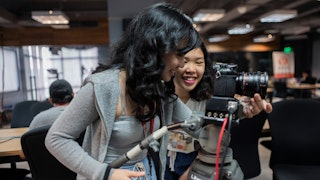REDI Microfinance Initiative Shows Roma Entrepreneurs Are Creditworthy, Provides a Pathway to Financial Inclusion
media@opensocietyfoundations.org
+1 212-548-0378
NEW YORK—The Soros Economic Development Fund (SEDF), the impact investment arm of the Open Society Foundations, today announced encouraging early results from its investment in the Roma Entrepreneurship Development Initiative (REDI), which provides loans to Roma entrepreneurs. The data show that Roma entrepreneurs—long excluded from Europe’s formal economy—perform on par with non-Roma borrowers when given equitable access to financing, challenging entrenched assumptions about risk and reliability.
REDI was launched in 2022 with catalytic capital from SEDF to test whether Roma-led small businesses could sustain commercial loan repayment rates once considered too risky by traditional lenders. Three years later, the findings demonstrate that repayment rates among Roma entrepreneurs match those of mainstream borrowers—underscoring that Roma entrepreneurs can thrive when given access to finance.
Through this initiative, close to 1,000 loans have been issued to date, with an average size of €7,000. The majority of recipients are women-owned businesses operating in underserved communities. By 2026, REDI’s loan portfolio is projected to expand to €15 million across six European countries, including North Macedonia, Kosovo, Romania, Albania, Montenegro, and Slovakia, up from its initial €5 million.
Roma are Europe’s largest transnational minority—estimated at more than 12 million people—and they consistently face exclusion from mainstream economic systems. Many Roma lack formal credit histories, acceptable collateral, or access to conventional financial institutions. They are often perceived as “high risk,” and many report being subject to discrimination in employment and finance. According to recent surveys, 36 percent of Roma report having faced discrimination when seeking work—more than double the rate recorded in 2016 (16 percent).
Aura Drăgușin, a mother of three from Teleorman, Romania, is one of the individuals whose life has been transformed by REDI’s support. After repeated rejections from commercial banks, she secured financing through Patria Credit, a microfinance institution supported by REDI. That loan enabled her to open a car wash business—an enterprise that now supports her family and employs others in her community.
“One of the most powerful roles impact investing can play is to reshape perceptions of risk,” said Georgia Levenson Keohane, CEO of SEDF. “While microcredit has an important history as a tool for financial inclusion around the world, it had never been applied to the Roma context. By demonstrating that Roma entrepreneurs are creditworthy, REDI is helping to create critical pathways to financial, economic, and social inclusion.”
The design and implementation of REDI is shaped by Petrica Dulgheru, a Roma scientist and civic leader with deep ties to Roma communities. His insight ensured that REDI’s model extends beyond finance, combining lending with mentorship, technical assistance, and locally informed financial services to address the specific challenges faced by Roma entrepreneurs.
“We began with a simple but troubling observation—almost every Roma business loan application was being rejected,” said Dulgheru. “REDI demonstrates that those barriers, often based on outdated perceptions, can be dismantled through inclusive and informed design.”
REDI’s early results offer a promising model for inclusive economic growth across Europe and beyond. SEDF will continue to scale the initiative, alongside new co-investors.

